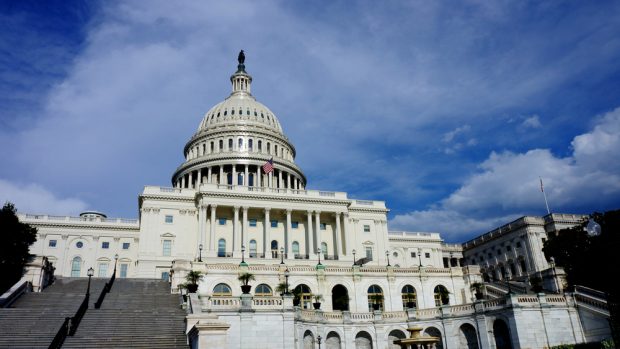 U.S. Capitol steps. (Source: Shutterstock)
U.S. Capitol steps. (Source: Shutterstock)
Different year. Same results – kind of.
The annual political musical chairs competition between banks and credit unions ended as it has in years past – with the banking industry left standing. Thursday night, the House of Representatives passed the $778 billion FY 2022 National Defense Authorization Act with a bipartisan vote of 316-113.
Recommended For You
As a result, the final version of the House bill did not include the expansion of banks on military bases, where credit unions are allowed to exist rent-free on many military bases due to their not-for-profit status.
Earlier this month during negotiations about the bill, the House Armed Services Committee did not adopt an amendment with the base-access provision sought by banks.
CUNA, NAFCU and the Defense Credit Union Council successfully fought to exclude this provision and narrowed the language of an amendment that would direct the Defense Department to study the larger issue of financial access to service members on base.
A statement Thursday from CUNA President/CEO Jim Nussle said, "CUNA, the Leagues and credit unions across the country have been tireless advocates for these two common sense provisions that will benefit consumers, communities and small businesses, and to maintain the existing arrangement that allows credit unions to continue outstanding service to military members and their families. This is a result of bold, fierce advocacy from the CUNA-League system, as we successfully demonstrated credit unions' value to their members and communities."
A letter sent in May from the three credit union trade groups to Senate and House committees noted that for years Congress has authorized the Defense Department, at its discretion, to allow credit unions to use land and space on military bases at a nominal rate.
"Historically, defense credit unions have been asked to remain on base to alleviate the high transactional costs coupled with poor service by other financial institutions," the groups wrote. "It is no secret, being member-owned and not-for-profit is how defense credit unions keep interest rates low and responsive to member needs (e.g., deployment), which improves the financial readiness of our military."
According to a statement from CUNA, there were two other key credit union-related items included in the House version of the bill:
1. Remote Notary: An amendment that would authorize the use of remote online notarization and create national standards and protections for financial institutions that use it.
2. SAFE Banking Act: The Secure And Fair Enforcement (SAFE) Banking Act was included in the FY22 NDAA. According to CUNA, "The SAFE Banking Act would put in place necessary protections to bring revenue from state-sanctioned cannabis businesses into the financial services mainstream and, as a result, keeping communities safe."
The House version of the bill must now be reconciled with the Senate's version before it can move on to President Biden for his signature.
Earlier this summer, the Senate Armed Services Committee approved its version of the FY22 NDAA.
© Touchpoint Markets, All Rights Reserved. Request academic re-use from www.copyright.com. All other uses, submit a request to [email protected]. For more inforrmation visit Asset & Logo Licensing.







